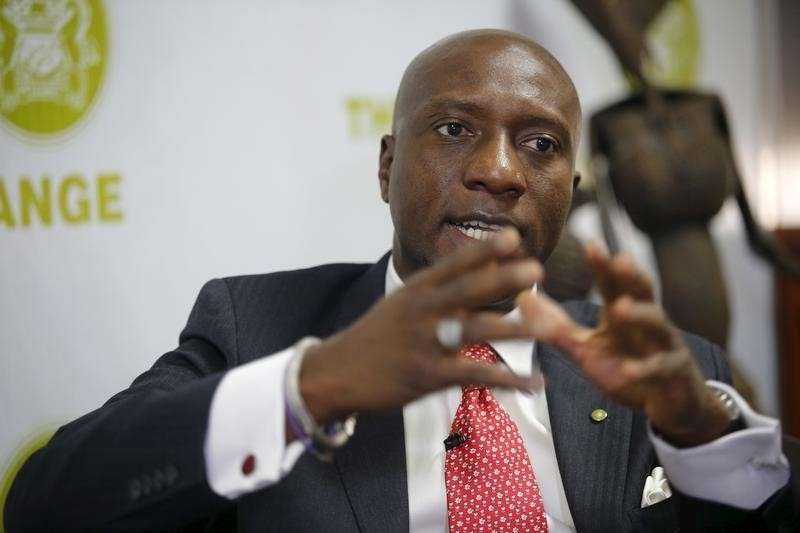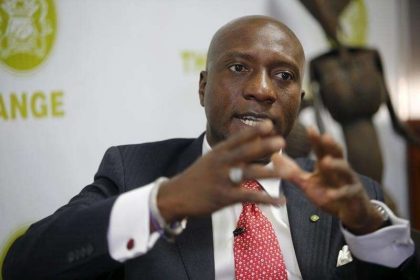Capital Market
Crashing equities signpost worsening economy

By OKEY ONYENWEAKU
A gale of anxiety has presently gripped share-holders and other capital market stakeholders as the equities market continues its almost unhindered southward drift. As insignificant as the -7.07 per cent year to date actual state that the market’s current negative position may appear, the gnawing reality however is that the non-salutary performance of the equities market is indeed having a substantial erosion effect on the pockets of many investors in capital market instruments.
Last Monday, April 8, 2019, Nigerians woke up to see investors in the market which closed the year 2018 with a -17 per cent negative performance lose a further N4.8billion as the bearish sentiments persisted.
The market capitalisation of equities listed on the Nigerian Stock Exchange (NSE) dropped from N10.954 trillion on Monday, April 8 to N10.948trn on Tuesday April 9, drawing closer to a two-year low level of 25,780.02 basis points on April 21, 2017.
Activity level declined as volume and value dropped by 17.7 per cent and 41.8 per cent to 374.026 million units and N3.057 billion, respectively. Similarly, same day performance was bearish as all indices: from insurance, consumer goods, and on to the banking sub-sector closed on a negative note.
Ever since the opening of the market this year, low sentiments have pervaded the market as the year on year return still stands at a disappointing -24 per cent negative.The weakening condition of the market has also affected the stock prices of companies which have taken a steep dive.
Experts believe that a mobilized economy is a healthy economy and a stock exchange is very efficient at mobilizing money that the economy needs. As the dialectic goes, investors hand over their funds to companies in exchange for the chance of future profit while companies gain more capital to expand their businesses.
However, to secure a rise in the price of shares, industry analysts also opine, depends on the profitability of the company. If the company is profitable, then its stock market value increases, which in turn increases the overall flow of investments in the stock market. ‘’This leads to capital formation and increased production capacity’’, they concluded.
Currently however, there is almost unanimous consensus that the Nigerian economy appears to be singing a demoralising tune given its dull performance. But then there is a sense in which this is more than a Nigerian problem.
Deputy Director, Monetary and Capital Markets Department, IMF, Fabio Natalucci, said during a briefing in Washington on Wednesday April 10, that the global economy was slowing.
‘’There have been market gyrations over the last 6 months that have affected risk assets. So that has kind of raised investor concern about the health of the corporate sector’’, he said.
A graphic capturing of the capital market movement this year reveals that the All Share Index (ASI) which opened on January 3, 2019 stood at 30,778.10 basis points fell to 29,321.30 on January 9, 2019 and peaked at 32,713.20 on February 15, 2019 before plunging again to 29,202.54 basis points on April 8, 2019.
This contrasts with the giant leap of the equities market in 2017 when ASI closed at 38,243.19 basis points. Its capitalisation also closed on a high at N13.609tn in the same 2017. But the story was different in 2018 as investors in the equities market lost N1.89tn last year amid instability in the market.
Stock prices have also trended downward as Nigerian economic managers continue to grope in search of the best strategies to apply to drag the economy out of the woods.
A closer look into developments in the market disclosed that within one week in particular, equities prices slumped from February 11, 2019 to February 15, 2019. While the banking sub-sector of the market dropped 43 per cent from 435.55 points to 374.73 points in the review period, NSE Oil and Gas fell 6.7 per cent from 303.17 to 282.62 points, As for the Consumer Goods Index, it also dropped 15.04 per cent from 764.57 to 649.57 while the insurance sub-sector also lost 6.2 per cent from 128.78 points to 120.76 points.
Not a few individual stocks were also similarly hit by the sweeping erosion of value in the market. While Zenith Bank shed 17.3 per cent, Access Bank dropped 9.09 per cent, UBA fell 19.3 per cent, FBNH trended down 7.45 per cent, and UACN eased by 19.07 per cent. Seplat also dropped 4.6 per cent from N619.00 to N590.00 per share.
The drop in prices within the one and half year period was even milder when compared to the giddy heights prices of stocks attained in 2007/2008 before the market correction exercise was undertaken, and when the All Share Index fell from 66,000,00 points to about 24, 000,00 points in just a few weeks.
A growth of 1.9 per cent for a largely unproductive economy in which population growth stood conservatively at 3 per cent, may not be able to make significant impact in the pockets of Nigerians and translate to investment in stocks.
Analysts believe that ultimately, the slow and weak values of stocks may be resulting from the weak macro-economic environment.
Looking down the line, economists do not expect any magic from a country with a mono-economy and which is yet to cultivate other sectors enough to grow her economy.
With a dismal growth of 1.9 per cent in 2018, the Nigerian economy unimpressively lost out on meeting the set target of about 3 per cent. In a mono-economy that is substantially dependent on the vagaries of the price of crude oil for revenues, not much has been put in place to galvanise productivity in other sectors for significant growth.
Sadly, this is even when the country’s population growth rate is put at above 3 per cent annually alongside a corresponding unemployment rate of 23 per cent. These continue then to defy the Economic Recovery and Growth Plan (ERGP) which industry analysts also doubt is not even being properly implemented even as it also betrays no clear vision.
Analysts believe there is a very close nexus between the economy of a country and its capital market.
Taking the super-cautious prism, Goldman Sachs is not feeling very bullish about stocks in Nigeria in 2019, according to its official outlook report to clients
But the Lagos-based analyst, Dr. Afolabi Olowokere of Financial Derivatives Company Limited, believes that both markets (Money and Equities market) are yet in a good position to remain active and earn investors returns. However, he equally notes that many investors would prefer the fixed income instruments which offers not less than 14/15 percent appreciation value at the moment.
‘’The equity market will do well still if you enter early. But it is certain that fixed income instruments will do well given that the government will borrow from the financial market’’, said Olowokere.
Another respectable analyst, the Managing Director of HighCap Securities Limited, Mr. David Adonri told Business Hallmark via a telephone interview that whenever there is a negative yield curve in the financial market there is a migration of financial assets to short term instruments in the money market.
And this presently seems to be the burden of the equities market.






